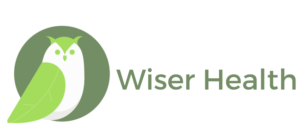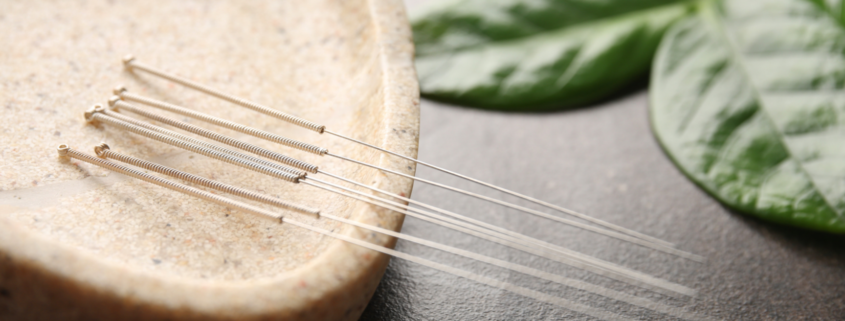For centuries, acupuncture has been used as a form of Traditional Chinese Medicine for a variety of health issues. More and more women are turning to acupuncture for fertility treatments, either alone or in combination with other therapies. So what’s the best acupuncture for fertility? And how can you find a qualified practitioner? Keep reading to learn more.
In the U.S., about 12% of women between the ages of 15 to 44 have difficulty either getting pregnant or staying pregnant, and those numbers aren’t going down. For many women and couples, the process of trying to have a baby can take its toll financially, physically, mentally and emotionally. If there were a way to potentially minimize those negative effects, wouldn’t it just make sense to take it? Of course it would!
It doesn’t matter where you are in the process of trying to conceive and have a healthy pregnancy, the approach in finding an acupuncturist that suits you is the same. You may be just starting out and simply want to do everything you can to stack the odds in your favor. Great! You may be considering fertility treatments like IUI or IVF, because you haven’t been able to conceive naturally. Okay, go it. Perhaps you’ve already had a child, but are finding that creating a sibling isn’t going as well as that first one. That’s called secondary infertility, and we’ve seen it often. Or lastly, you’re a veteran of the fertility world and still hoping for your miracle. We see you, and we want to help.
Acupuncture has been proven, both in the literature and clinically, to be effective at improving fertility for a wide variety of issues — PCOS, poor egg quality, advanced maternal age, low AMH, anovulation, luteal phase defect, and so on.
How to choose the best fertility acupuncture practitioner for you.
- Are they properly licensed? Different states have different licensure regulations. You should be able to look up a practitioner’s license status through a state registry. For instance, in Texas, we are governed by the Texas Medical Board, and you can look up licenses on their website at https://www.tmb.state.tx.us/page/look-up-a-license. Wiser Women’s Health is properly licensed.
- Are they NCCAOM certified? The National Certification Commission for Acupuncture and Oriental Medicine (NCCAOM)® is the only national organization that validates competency in acupuncture and Oriental medicine through professional certification for 46 states and the District of Columbia. You can look up a practitioner at https://www.nccaom.org/find-a-practitioner-directory/. Wiser Women’s Health is NCCAOM certified.
- Do they have specific training in fertility and reproductive health? Most acupuncturists will tell you they treat infertility. They likely aren’t being intentionally deceptive. In Chinese medicine, we are trained to treat the whole person, not just a piece of them, so you need to look for evidence that they have the knowledge and experience you’re looking for. Because acupuncture uses a holistic approach, it should be noted that there isn’t one best way to treat fertility/infertility. Sara Stapleton at Wiser Women’s Health was an Inaugural Fellow of the American Board of Oriental & Reproductive Medicine and continues to take courses to increase her knowledge every year.
- Are they experienced and knowledgeable in conventional fertility treatments? Look for information on their website. Listen to how they answer your questions. Read their reviews. Do you get the sense they can walk the walk with you? Do they understand the fertility protocol you’re going through? Listen to your instincts. We’ve got the receipts. We have helped hundreds of central Texas women have healthy babies over the years, and most of them were simultaneously going through treatments with their fertility doctor.
- Do you feel comfortable and confident with them? Sometimes you just know that someone is or isn’t a good fit for you. Trust that. Sometimes you just need to have an initial appointment with them to get a true sense of who they are and how they work. Did you leave that appointment feeling hopeful and relaxed? Did you feel heard? Did they answer your questions to your satisfaction? This is something only you can answer. I can tell you this. Many of my patients come as referrals from previous patients, which is the highest compliment I can get.
When is the best time to start acupuncture for fertility?
It’s never too early. Ideally, you’ll begin at least 3 months prior to either trying to conceive (TTC) naturally or beginning a fertility cycle with your doctor. The reason being that folliculogenesis (the time it takes to develop a follicle for release at ovulation) is about a 90 day process. A 3 month head start will help prepare the egg(s) that will either be released for ovulation or retrieved for in vitro fertilization.
It’s also never too late. Research has shown that even minimal acupuncture can have a positive impact on fertility.
Acupuncture helps fertility by restoring balance within the body. It can help to regulate hormones, increase blood flow to the uterus, and reduce the stress and anxiety that can accompany a fertility journey. Acupuncture is a safe and effective treatment for infertility, and can be used alone or in combination with other therapies.
We’re a little biased, but if you’re looking for the best acupuncture for fertility in Austin, we think you’ll find it at Wiser Health. Reach out or schedule your appointment today!
======================================
SOURCE
Infertility. (2021, April 13). Centers for Disease Control and Prevention. Retrieved January 30, 2022 from https://www.cdc.gov/reproductivehealth/infertility/index.htm



